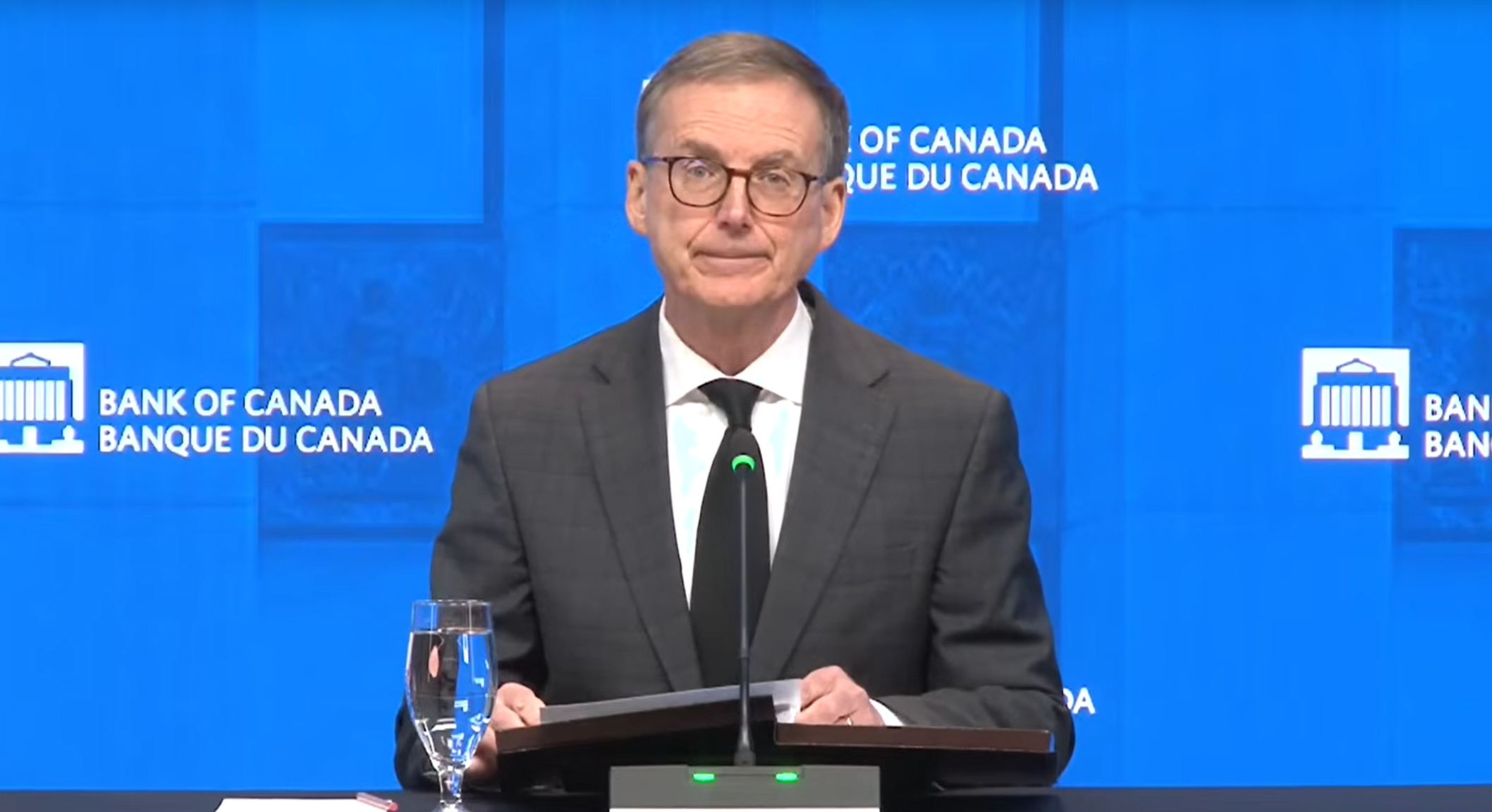Macklem: Be prepared for ‘possible turbulence ahead’
Bank of Canada Senior Deputy Governor Carolyn Rogers and Governor Tiff Macklem pictured at a press conference Thursday, May 8, releasing the latest Financial Stability Report. (Screenshot)
The escalating trade conflict triggered by the U.S. is putting renewed pressure on Canada’s financial system, reversing signs of improvement seen earlier this year and increasing the risk of economic turmoil, the central bank warned.
“The big message in this report is we now face a new threat,” Bank of Canada Governor Tiff Macklem said Thursday at a press conference. “The trade war poses new risks. So even if things were moving in the right direction, it’s a really good time to get prepared for possible turbulence ahead.”
In its latest Financial Stability Report — an annual assessment of the resilience of Canada's financial system and the risks that could threaten its stability — the central bank said that until recently, the financial picture for Canadian households and businesses had been improving. Households were carrying less debt relative to income, and business insolvencies had dropped significantly. But the U.S.-instigated trade war has created widespread uncertainty, triggering sharp market volatility and raising the risk of financial stress.
Investor anxiety
Since January, unpredictability in U.S. trade policy has fueled market unrest. The announcement of sweeping new tariffs in early April led to a rapid repricing across equities, bonds and currency markets. Stock market volatility spiked to levels not seen since the pandemic, and sovereign bond yields in both Canada and the U.S. swung dramatically. Unusually, the U.S. dollar and U.S. Treasuries weakened alongside stocks, reflecting investor anxiety and the unwinding of leveraged positions by hedge funds.
“Even as volatility spiked and liquidity at times diminished in some asset classes, markets continued to function relatively well both globally and in Canada,” the bank said in the report. Still, Canadian investors have reacted cautiously — adjusting portfolios, reducing risk, and revisiting their hedging strategies.
The broader economic implications are also becoming clearer. “A long-lasting trade war poses the greatest threat to the Canadian economy,” Macklem said. In a scenario where tariffs increase and persist for several years, the Bank warns that more Canadians could fall behind on mortgage payments — potentially pushing arrears to levels “not seen in a generation.”
Seven-quarter recession?
In its downside risk scenario, which the Bank emphasized is not a forecast, mortgage arrears could rise above 0.5%, surpassing the 2008–09 global financial crisis, though still below the 0.6% peak in the 1990s. Government support could mitigate the damage, but their scope and effectiveness remain uncertain.
An even more severe scenario modeled by the International Monetary Fund envisions a prolonged seven-quarter recession with GDP contracting by 5.1%, unemployment peaking at 9.2%, housing prices falling 26%, and equities plunging 36% from peak to trough.
Despite these alarming projections, the Bank maintains that Canada’s financial system is well-positioned to absorb shocks. Banks have strong capital buffers, high liquidity, and increased provisions for credit losses. “We want to make sure that there is a level of vigilance,” Macklem said. “That there isn’t overconfidence that everything is going to work out, and that the financial system is prepared for turbulence.”
Broken trust
He also acknowledged that, even if trade tensions were resolved quickly, long-term damage may have already occurred. “I expect there will be some permanent impacts,” Macklem said. “It does feel like trust has been broken to a certain degree.”
In the meantime, while lower interest rates and rising incomes have supported households with mortgages, those without mortgages are showing signs of rising stress. The Bank reported that delinquencies on credit cards and auto loans have surpassed pre-pandemic levels and historical averages.
Overall, household debt remains historically high, leaving many Canadians vulnerable if economic conditions worsen further — particularly those in trade-sensitive sectors or regions. Loans in those areas represent about 15% of Canadian bank assets, but the Bank warns that spillover effects could ripple across the wider economy.
Still, the Bank emphasized its readiness to respond. “A stable and resilient financial system — one that absorbs shocks and does not amplify them — can help the economy through periods of turbulence,” the report concludes.




